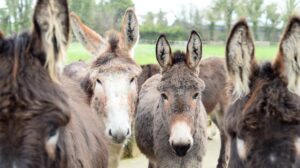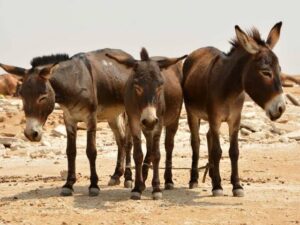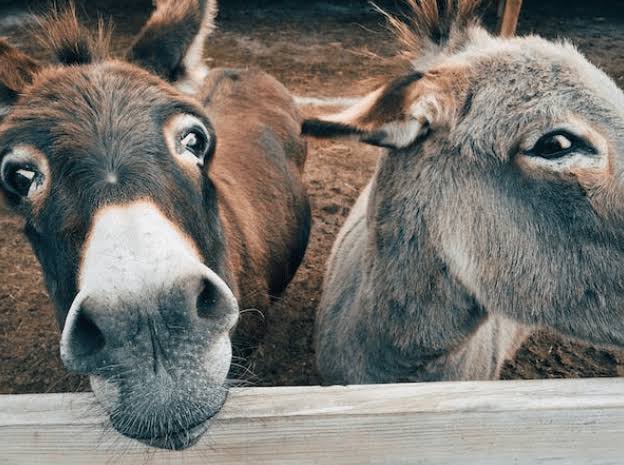In a groundbreaking move aimed at safeguarding the welfare of millions of donkeys across the continent, the African heads of state have unanimously agreed upon a historic ban on the trade in donkey skin.
This landmark decision, announced on the concluding day of the African Union summit held in Ethiopia, marks a significant milestone in the fight against the exploitation and cruelty inflicted upon these invaluable animals.
The agreement to outlaw the killing of donkeys for their skin comes in response to mounting concerns over the devastating impact of the donkey skin trade on both donkey populations and the communities that depend on them.

Marianne Steele, Chief Executive of The Donkey Sanctuary, hailed the decision as a crucial step towards ending the brutal exploitation of donkeys for profit. “This agreement from leaders of the African Union strikes at the heart of the brutal skin trade,” Steele stated. “It’s our hope that this decision will act as a catalyst for the rest of the world to act now, to not just save our donkey populations but to actively recognize their value and protect them properly.”
The demand for donkey skin, driven primarily by the traditional Chinese medicine ejiao, has fueled a global trade that is vicious, unsustainable, and opportunistic.
Also, read; Ghanaian Socialite Hajia4Reall Pleads Guilty in $2m Romance Scam Case in US
In recent years, the production of ejiao has skyrocketed, with estimates indicating a 160% increase between 2016 and 2021. To meet this demand, millions of donkeys are slaughtered annually, leading to a dramatic decline in donkey populations across Africa.
The impact of the donkey skin trade extends far beyond animal welfare concerns, with tens of thousands of African communities relying on donkeys for their well-being and means of subsistence.
Donkeys play a critical role in various sectors, including agriculture, transportation, and commerce, and their exploitation undermines efforts to achieve several United Nations-mandated sustainable development goals.
 The historic pan-African agreement represents a significant victory for animal welfare and human livelihoods alike. However, the success of this ban hinges on its effective implementation and enforcement by every member state of the African Union.
The historic pan-African agreement represents a significant victory for animal welfare and human livelihoods alike. However, the success of this ban hinges on its effective implementation and enforcement by every member state of the African Union.
As Otieno Mtula, Regional Campaigns and Advocacy Manager for The Donkey Sanctuary, emphasized, “This landmark decision needs to be implemented and enforced by every country that makes up the African Union.” Only through collective action can we ensure the protection and well-being of Africa’s donkey populations for generations to come.

